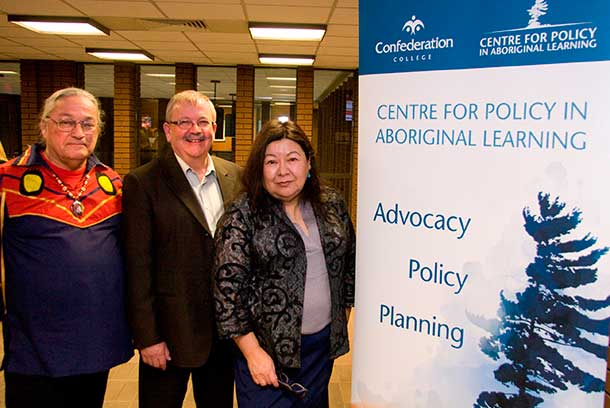

THUNDER BAY – EDUCATION – Confederation College’s facilities, labs, shops and classrooms were filled with local grade 11 and 12 high school students today as part of Confederation College’s annual Open House.
Students from across the city had the opportunity to experience college life and customize their experience based on their programs of interest. With tours in each of the six schools at Confederation College, students were able to engage in important one-on-one conversations with Program Coordinators and participate in tours of the related areas on campus.
“Open House is a window into life at Confederation College,” said Jim Madder, President of Confederation College. “It shows youth in our community the importance of pursuing post-secondary education and more specifically, how they can put their dreams to work with the support of our College.”
Confederation College offers over 60 post-secondary programs that prepare students for a wide range of careers. A Key Performance Indicator (KPI) study reported that Confederation College is number one in graduate employment with 89.1% of students finding employment within six months of graduation (2012-13 results).

Confederation College opened the doors to its Centre for Policy in Aboriginal Learning (CPAL) for the first time today. Community members had the opportunity to meet the CPAL team and learn about CPAL’s mandate, objectives, current initiatives and future directions (see backgrounder attached).
The first and only college-based Aboriginal education policy and research centre within Canada, the Centre for Policy in Aboriginal Learning provides leadership, advocacy and strategic advisement to Confederation College, community partners, public institutions and government agencies engaged in advancing Aboriginal learning.
“The Centre for Policy in Aboriginal Learning is critical to Confederation College’s success in our strategic direction to support and advance Aboriginal learning,” said Jim Madder, President of Confederation College. “It confirms that Confederation is the expert resource for those seeking to understand Aboriginal heritage, history, culture and the relationship to post-secondary education policy and research.”
“Indigenous knowledge, principles and practices, and meaningful partnerships and collaborations are foundational to the work of CPAL,” said S. Brenda Small, Vice President of the Centre for Policy in Aboriginal Learning at Confederation College. “CPAL’s innovative use of Indigenous and participatory approaches will help to foster positive outcomes within the institution and beyond, allowing us to influence public conversations about Aboriginal learning, social change and policy development in education.”






